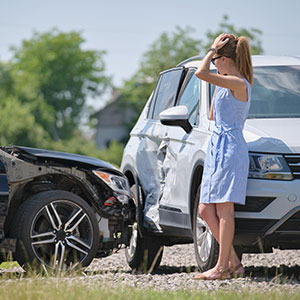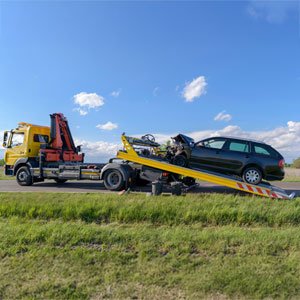Improving Child Safety Seat Usage Could Save Over 1,100 Children’s Lives
Car AccidentsThe Journal of Pediatrics published a study done on the impact of child restraints in car accidents and the impact on pediatric mortality. “Unintentional injury” was listed as the leading cause of death to children in the United States with motor vehicle crashes being the most common cause of injury. The study examined a number of factors from state to state, including the use or misuse of a child safety restraint, accidents occurring on rural roads, the type of vehicle involved, the speed limit, and whether a state has a law allowing red light cameras at intersections.
Improving Child Safety Seat Usage Can Save Over 1,100 Children’s Lives Over A Five Year Period
The statistical results of the study indicate that reducing the number of unrestrained or improperly restrained children in car accidents from 20% down to 10% would result in saving more than 1,100 children’s lives over the course of a five year period. This conclusion was reached with all factors being taken into consideration.
In the analysis of the study, the proper use of child safety seats or child restraints was also examined. National surveys indicated that inappropriately restrained children were nearly twice as likely to sustain a clinically significant injury than properly restrained children. Children with no restraints were greater than three times as likely to have a clinically significant injury. This highlights not only the importance of using a child safety restraint, but also the importance of using it properly.
What Are Florida’s Child Restraint Or Safety Seat Requirements?
As it is proven the child safety seats save lives, Florida has codified its child restraint requirements in section 316.613, Fla. Stat. It says:
(1)(a) Every operator of a motor vehicle as defined in this section, while transporting a child in a motor vehicle operated on the roadways, streets, or highways of this state, shall, if the child is 5 years of age or younger, provide for protection of the child by properly using a crash-tested, federally approved child restraint device.
1. For children aged through 3 years, such restraint device must be a separate carrier or a vehicle manufacturer’s integrated child seat.
2. For children aged 4 through 5 years, a separate carrier, an integrated child seat, or a child booster seat may be used.
Therefore, a child should not be in a regular seat belt until at least age 6.
Are There Exceptions To Florida’s Child Restraint Requirements?
Florida allows for three exceptions described below to the requirement to use a child safety seat while traveling in the car.
However, the requirement to use a child restraint device under this subparagraph does not apply when a safety belt is used as required in s. 316.614(4)(a) and the child:
a. Is being transported gratuitously by an operator who is not a member of the child’s immediate family;
b. Is being transported in a medical emergency situation involving the child; or
c. Has a medical condition that necessitates an exception as evidenced by appropriate documentation from a health care professional.
While medical emergencies or other medical reasons seem appropriate, the exception for a child being “transported gratuitously … who is not a member of the child’s immediate family” is a somewhat of a surprise that it exists in the statute. On one hand, it is hard to blame anyone but a parent for not using a child safety seat. However, as a Florida personal injury attorney, I find it difficult to understand the reason for this exception, particularly in light of subsection 3 described below (failure to use child seat cannot be considered comparative negligence in a court of law).
Other Types Of Vehicles Are Exempt From The Child Safety Seat Law Altogether
Below is the list in the statute of vehicles that are completely exempted from the child restraint law in Florida. Those such as school buses are obvious (despite some efforts to require seat belts on school buses) while others are not.
(2) As used in this section, the term “motor vehicle” means a motor vehicle as defined in s. 316.003 that is operated on the roadways, streets, and highways of the state. The term does not include:
(a) A school bus as defined in s. 316.003(68).
(b) A bus used for the transportation of persons for compensation, other than a bus regularly used to transport children to or from school, as defined in s. 316.615(1)(b), or in conjunction with school activities.
(c) A farm tractor or implement of husbandry.
(d) A truck having a gross vehicle weight rating of more than 26,000 pounds.
(e) A motorcycle, moped, or bicycle.
The vast majority of buses, whether private charter or city buses, have never had seat belts. When riding on a bus, a parent would have a difficult time using a child seat even if they wanted to. Farm tractors and semi-trucks are also exempt from child seat requirements (don’t ask my why a truck driver is transporting a child or a child is riding in a piece of farm equipment).
Finally, the big surprise on this list is “motorcycle, moped, or bicycle.” It is hard to imagine that a parent would allow a child (particularly under the age of 12) to ride as a passenger on a motorcycle or moped.
Taxi Cabs And Transportation For Hire Is Also Exempt
The statute says the following with regard to a variety of transportation for hire:
(6) The child restraint requirements imposed by this section do not apply to a chauffeur-driven taxi, limousine, sedan, van, bus, motor coach, or other passenger vehicle if the operator and the motor vehicle are hired and used for the transportation of persons for compensation. It is the obligation and responsibility of the parent, guardian, or other person responsible for a child’s welfare as defined in s. 39.01 to comply with the requirements of this section.
While riding in any vehicle for hire, the safety of a child is the parents’ responsibility under Florida law and not the driver or owner of the vehicle (to the extent that the accident itself is not caused by the driver). Therefore, you cannot sue a taxi driver if a child gets hurt because a child seat was not used.
Florida Does Not Punish Children In Court For The Misdeeds Of Adults
Perhaps the most important part of Florida’s child safety restraint law is that anyone who causes a car accident cannot use the fact that the child was not in a car seat as evidence against the child to reduce the damage award made by the jury. The law says:
(3) The failure to provide and use a child passenger restraint shall not be considered comparative negligence, nor shall such failure be admissible as evidence in the trial of any civil action with regard to negligence.
Therefore, a litigant in Florida cannot mention or show any evidence whatsoever (including pictures) that would be a giveaway to the jury that an injured child was not in a car seat at the time of an accident. This has profound legal implications for third party liability cases because the defendant is not able to reduce their liability because a parent (or other person) failed to use a car seat for the child. This is simply the public policy of the State of Florida that children will not be punished for an adult’s failure to put them in a child seat.
Contact A Lakeland Car Accident Attorney For Help With Your Case
When you are negotiating with an insurance company about the value of your case, you may hear from the insurance company that your child’s case is worth less because your child was not in a car seat at the time of the crash. They may also say that they can blame you as the parent for a portion of legal responsibility for the crash for a failure to use a child seat.
In order to beat this back, you should have the help of an attorney and may need to have your attorney file a motion to prevent the admission of evidence against your child in court regarding the car seat issue. The insurance company may not settle your case until after you get a ruling from the judge on this issue.
If you have been injured in a car accident in Lakeland, Florida, then you should discuss your case with a Lakeland, FL personal injury attorney. Call today to schedule your free consultation.


